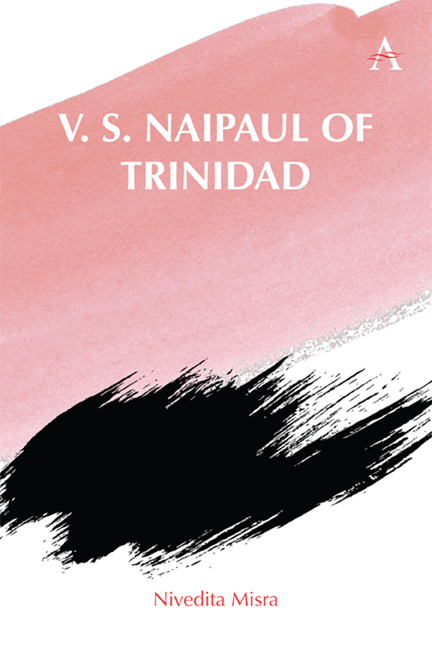Book contents
- Frontmatter
- Dedication
- Contents
- Foreword
- Introduction
- 1 Early Fiction of the 1950s: The Trinidad Years
- 2 The Interloper in Travel Writing
- 3 Mimicry and Experiments of the 1960s
- 4 Displacement Across Borders in the 1970s
- 5 The Imperial Vision of the 1980s
- 6 Redemptive Journeys in the 1990s
- 7 Composing again in the 2000s
- Conclusions
- Appendix A A Note on Trinidad
- Appendix B A Note on V. S. Naipaul’s Terminolog y and Use of Spellings
- Works Cited
- Index
3 - Mimicry and Experiments of the 1960s
Published online by Cambridge University Press: 27 March 2024
- Frontmatter
- Dedication
- Contents
- Foreword
- Introduction
- 1 Early Fiction of the 1950s: The Trinidad Years
- 2 The Interloper in Travel Writing
- 3 Mimicry and Experiments of the 1960s
- 4 Displacement Across Borders in the 1970s
- 5 The Imperial Vision of the 1980s
- 6 Redemptive Journeys in the 1990s
- 7 Composing again in the 2000s
- Conclusions
- Appendix A A Note on Trinidad
- Appendix B A Note on V. S. Naipaul’s Terminolog y and Use of Spellings
- Works Cited
- Index
Summary
V. S. Naipaul’s travels to Trinidad and India led him to create a narrative ‘I’ for his race-class-ethnic-gender-time specific experience of travel writing. Due to his travel writing experiments, Naipaul got interested in the point of view technique and the resultant fiction of the 1960s produced a narrative emphasis on the protagonists’ limitations in knowing the world. Naipaul had protected his writer self from public scrutiny through the use of boyish narrators (adults writing from the point of view of their younger selves) in his social comedies of the 1950s. His travel writing of the early 1960s created a narrator who voiced his insecurities and anxieties with reference to an issue or geographical area but also hid his constant need for social and financial support. Naipaul the narrator could be under the critical eye while Naipaul the person retreated from the public space. Naipaul’s writings of the 1960s, more generally, are dominated by a schizoid personality as he watches himself construct various narrators who are sometimes only observers, sometimes participants and most times participants and observers to their own drama of life.
Though it is often thought that Naipaul did not write about Trinidad after the first four books, Naipaul, in fact, began to write about Trinidad from his own experiences in the 1960s and the 1970s. The differences are manifold: while the fiction of his 1950s books was based upon his father’s transference of material and techniques, he now came to write directly from his own experience. This is not to say that the material used by him for his 1950s writings were not his experience, but to emphasise that those experiences were his while ensconced in his father’s care. A second difference is that just as he produced a difference between his narrator and writer personae, he now created the landscape of a fictional Caribbean island, that was like Trinidad yet not exactly so, whether it was as an unnamed island in the short story ‘The Nightwatchman’s Occurrence Book,’ the island in the novella ‘A Flag on the Island’ or the island of Isabella in The Mimic Men. This marks a growth in Naipaul’s oeuvre as he felt distanced enough from his raw experiences to write about Trinidad as a fictional landscape (Poynting 1985, p. 775). He was no longer transforming reality into art but artfully crafting a distance between his experience and his writing.
- Type
- Chapter
- Information
- V. S. Naipaul of Trinidad , pp. 65 - 82Publisher: Anthem PressPrint publication year: 2024



